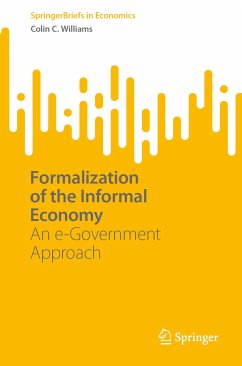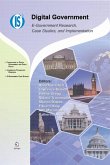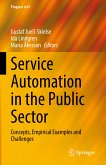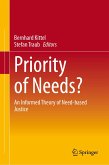This Brief provides a cutting-edge evaluation of the application of digital technologies to tackle the informal economy. Employing institutional theory to explain the informal economy, this book reveals that the informal economy arises when formal institutional failings trigger a gap between the formal rules of the game and social norms. Chapters outline how use of digital technologies by public authorities, such as tax, social security and labor authorities, can alter social norms so that they accord with the formal rules of the game and generate a formalization of the informal economy. Setting out the e-government tools that can improve the relationship between businesses, employers, workers and citizens, and government, this book will be essential reading for academics and advanced students studying development economics, labor economics, public economics, behavioral economics, economic sociology and institutional economics as well as for government policymakers working in related fields.
Dieser Download kann aus rechtlichen Gründen nur mit Rechnungsadresse in A, B, BG, CY, CZ, D, DK, EW, E, FIN, F, GR, HR, H, IRL, I, LT, L, LR, M, NL, PL, P, R, S, SLO, SK ausgeliefert werden.









